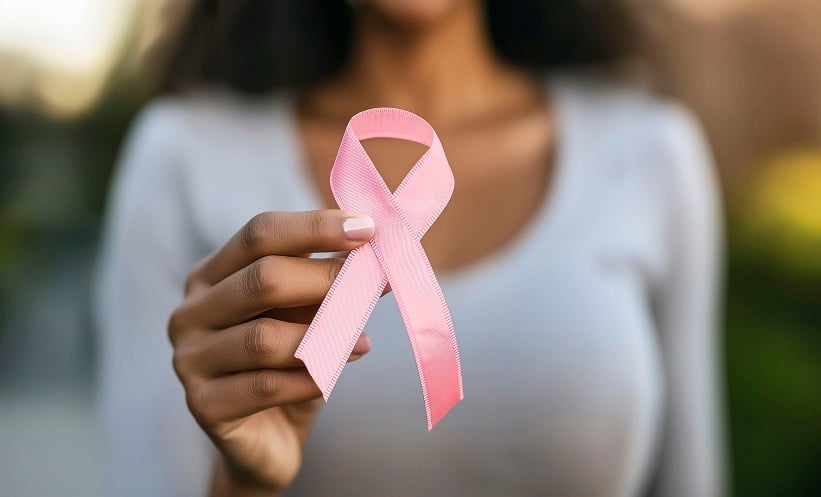NEW phase 3 clinical trial has shown that adding the immunotherapy drug nivolumab to standard neoadjuvant chemotherapy significantly improves pathological complete response (pCR) rates in patients with high-risk, oestrogen receptor-positive (ER+), human epidermal growth factor receptor 2-negative (HER2−) primary breast cancer (BC). This breakthrough could change the treatment landscape for a difficult-to-treat subset of breast cancer.
The study, which involved 510 patients, tested nivolumab alongside chemotherapy in patients with grade 2 or 3 ER+/HER2− BC. The primary goal was to increase pCR rates, the rate at which no cancer is detected following treatment. Results showed that pCR rates were significantly higher in the nivolumab group (24.5%) compared to those receiving placebo (13.8%), with the most pronounced benefits seen in patients whose tumours expressed programmed death ligand 1 (PD-L1). In this group, pCR rates were 44.3% for nivolumab compared to 20.2% for placebo.
The study also found that nivolumab did not introduce new safety concerns. However, two deaths in the nivolumab arm were linked to study drug toxicity, while no deaths occurred in the placebo group.
This trial suggests that nivolumab, an anti-programmed death 1 (PD-1) agent, may enhance the effectiveness of chemotherapy in early-stage, high-risk ER+/HER2− breast cancer, especially in patients with high levels of tumour-infiltrating lymphocytes or PD-L1 expression. These findings underscore the growing role of immunotherapy in treating luminal breast cancer, opening the door for new treatment strategies.
Helena Bradbury, EMJ
Reference
Loi S et al. Neoadjuvant nivolumab and chemotherapy in early estrogen receptor-positive breast cancer: a randomized phase 3 trial. Nature Medicine. 2025; https://doi.org/10.1038/s41591-024-03414-8








